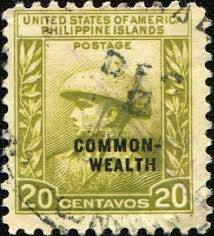We rarely understand the impact of the music we make or how important it is to choose music of lasting value. Sometimes it is hard to know what is lasting. Here is a true story about music that lasted and its impact.
 It was Christmas Day, 1945, on a U.S. Army Base outside Manila, Philippines. A young staff sergeant worked hard to finish his office tasks early. He wanted to leave the base by 5:30 p.m. to be sure to secure a seat for the 8:30 p.m. performance of Messiah in the “largest auditorium in Manila.” He was thousands of miles from home, he had witnessed the surrender of the Japanese to General MacArthur in August, he had a sweetheart waiting for him in Oklahoma, but his Christmas was going to be special because he was going to hear Handel’s Messiah. He would write home about the menu for Christmas dinner but it was Messiah that was the crown jewel of Christmas Day, 1945.
It was Christmas Day, 1945, on a U.S. Army Base outside Manila, Philippines. A young staff sergeant worked hard to finish his office tasks early. He wanted to leave the base by 5:30 p.m. to be sure to secure a seat for the 8:30 p.m. performance of Messiah in the “largest auditorium in Manila.” He was thousands of miles from home, he had witnessed the surrender of the Japanese to General MacArthur in August, he had a sweetheart waiting for him in Oklahoma, but his Christmas was going to be special because he was going to hear Handel’s Messiah. He would write home about the menu for Christmas dinner but it was Messiah that was the crown jewel of Christmas Day, 1945.
He returned to the U.S. in the spring of 1946 and married his sweetheart late that summer. They joined a small Mennonite church where he sang in the men’s chorus and heard many of the hymns that had reminded him of home in the Army church services he had attended in the Phillipines. Four children learned those hymns at church too, on trips in the car, and at home where a hymnal was always on the piano. His wife had taken piano lessons through high school and made sure the children had piano lessons. One child became a professional musician; another married a choral director who taught many students to sing; all participated in choirs in church and school. And his children learned Messiah, or at a minimum all knew the “Hallelujah” from the larger work.
He built a farming business and many farming-related businesses, loved sports, supported his church and education, and occasionally would attend a musical event if one of his children or grandchildren were involved. “I’ll come to your concerts if you don’t make me listen to you practice,” he once said to his pianist-daughter who was mastering the dissonances in Stravinsky’s Petrouchka for her master’s recital.
In December of 2011 his family, now grown to 28, gathered at the small Mennonite church near his assisted living facility, the church he and his wife had joined when they first married, where the children learned a strong faith, and where the children had placed a new piano in their parents honor a few months before. After a hearty dinner, the family gathered around the piano in the sanctuary to sing carols. The son said, “I wonder if we could sing the “Hallelujah Chorus.” A quick check of the hymnal—it was there! Could have used another tenor or two, but. . . .all those choir rehearsals were in the memories. . . .not bad.
On Good Friday, 2012, at 3:00 he died while his daughters sang his favorite hymns. As the family was planning his service, his sister said she recently had asked him how his Christmas was. “Really good,” he said. “What was good about it?” she probed. “My family sang the ‘Hallelujah Chorus,’” he said. So at the end of his service on Tuesday after Easter in the little Mennonite church, the congregation was invited to join the family for singing of the “Hallelujah.” About 50-60 did. An equal number listened.
It seemed a curious thing, the importance of the “Hallelujah” for him at that Christmas gathering. It wasn’t until later, when reading the letters from 1945, that I understood the power of that music for my father and how it would encircle his life and ours in such an important way. Hallelujah, indeed.
Charlotte Kroeker